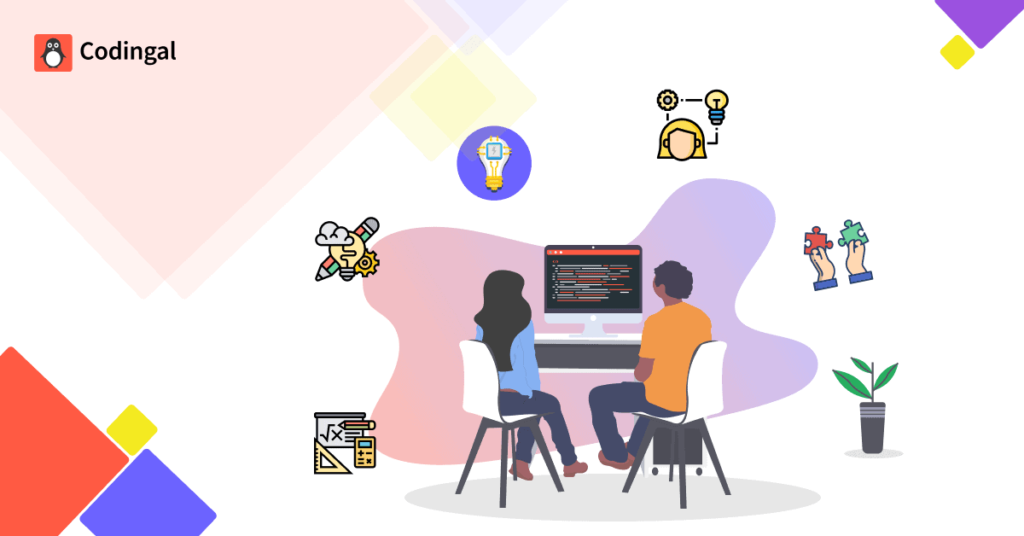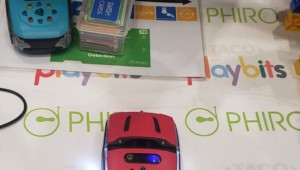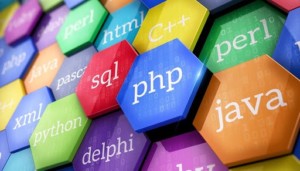Top 5 Benefits of Coding for Kids

By: Priyanka Reddy
Ever thought about the benefits of coding for kids apart from the fact that it is one of the most essential 21st-century skills?
Coding enables children to become independent citizens in a world where technology is ubiquitous. Learning to code helps students better understand one aspect of the digital world in which we live and, in some ways, become better prepared for it. The objective behind learning to code is no longer restricted to becoming a skilled coder and meeting the job market’s needs. It enables children to progress in all aspects of life.
The benefits of coding can be surprisingly wide-ranging. When it comes to preparing your kids for the future from an early age, coding opens the door to plenty of opportunities to acquire life skills and explore career opportunities.
In this blog, we will discuss the top five benefits of coding for kids. So let’s get started.
Coding nurtures creativity
Coding for kids is a fundamentally creative process, starting with nothing and finishing with something.
Just like painting or cooking, coding encourages a child to benefit from the satisfaction through the process. In the real world, creative acts are often limited by the materials we have at our disposal—like ingredients when we cook or the canvas when we paint. But with coding, where the virtual world is infinite, the only restriction is the child’s imagination. Creativity lays the foundation for innovation, ingenuity, and leadership because it represents the ability to connect existing ideas with new solutions, approaches, and concepts.
Creative thinking begins with a questioning mindset. And, through coding, we enable our curious and imaginative kids to be the creative thinkers of the next generation. It can be taught by encouraging kids to experiment, explore their ideas, question their assumptions, make mistakes and learn from them.
Coding makes math more fun and engaging
Over the years, the belief has been that kids interested in coding should develop strong math skills. However, it turns out the reverse may also be true: coding can help children build math skills and make learning math more engaging and fun. Math and coding are deeply related. Teaching kids how to code involves applying math concepts. Your kids will acquire these mathematical skills and abilities without even noticing them and while having fun.
When your kids participate in any coding competition, they apply principles that belong to mathematics and develop strong mathematical thinking that will help them in many areas of their academic and personal life.
Coding develops problem-solving skills
The ability to code gives a new perspective to problem-solving. From beginners to professionals, anyone will tell you that writing codes can get quite challenging. Through coding, children learn to quickly fix and try again in different ways when something doesn’t work out. Coding also equips kids with the ability to stick with a problem and work on finding a solution. This problem-solving technique is transferable to a lot of other fields.
For example, scientists solve problems by forming hypotheses and testing these hypotheses one by one. A coder tweaks parts of his code one component at a time to try which one solves the problem.
Coding enables computational thinking
Computational thinking is a structured and proven method designed to identify problems regardless of age or computer literacy level. It helps develop critical thinking and focuses on helping students develop and employ strategies for understanding and solving problems. It’s “cross-disciplinary” in nature, and it makes sense to start teaching it in elementary or even preschool. All the subjects are naturally blended for the students within the same environment.
More than anything, computational thinking is an unbelievably valuable thinking tool—perhaps the thinking tool of the 21st-century. By learning to code, kids develop the method of computational thinking.
Coding promotes learning by doing
Children learn best through doing and exploring. Learning by doing refers to a theory of education expounded by American philosopher John Dewey. It’s a hands-on approach to learning where students interact with their environment to adapt and learn. Learning by doing is the idea that we learn more when we actually “do” the activity. For example, imagine a kid is learning to play a game. With the learning by doing approach, the kid would understand the app they are using to play the game. Later, they begin to discover more about the movement of objects, points they can earn, and so on. It involves active engagement, not a passive practice.
Active engagement facilitates kids with deep learning and encourages mistakes, notice wrong movements, and how to learn from those.
Time to introduce your kids to coding!
To get your child interested, show them what coding allows them to make. Coding will enable them to do anything, starting from creating games and apps, designing animations, and much more. And, of course, it’s fun! Even if your child wants to do something outside of computer science when they grow up, their coding skills will prove helpful across fields—coding teaches problem-solving, organization, math, storytelling, designing, and more.
Most importantly, the ability to code transforms kids from passive consumers into innovative creators, with eyes that see every piece of technology as more than just a toy but as a problem to solve and an opportunity to create.
The benefits of coding come in handy for different aspects of life and allow kids to express themselves.
For more, see:
- Preparing for the Future: Building Interest in Computer Science
- Bringing STEM into Every Classroom Space
Priyanka Reddy is a Technical Content Writer at Codingal. Follow her on LinkedIn: Priyanka Reddy.
Stay in-the-know with innovations in learning by signing up for the weekly Smart Update.




Katie
I love this article! I think it is easy to think coding is strictly to benefit those who will go into the technology field. However, the skills gained from learning to code can be applied in so many areas. Just as kids, and will continue to, complain about Algebra—there are skills to be gained from 'solving for x' — problem solving and perseverance to name a couple! The benefit of teaching a subject or topic may not be apparent to everyone, or evident right away. This is a good reminder to look for the other, maybe less obvious, outcomes of teaching these subjects.
Summer Coding Camp for Kids
Your blog is really amazing and very helpful. By reading this blog we get to know each and every thing related to coding. I was surfing web for more than 2 hours, yet i never found any stunning blog than yours. its worth for me as it was the matter for my children. Coding Summer Camps are week-long coding courses in a variety of topics. Thanks for such a useful information.
Codeyoung
t's fascinating to see how coding education can have such a positive impact on children's development. Your blog does a great job of highlighting the various benefits, from fostering problem-solving skills to encouraging creativity and innovation. I particularly appreciate how it emphasizes the importance of coding as a tool for preparing kids for the future job market, where digital literacy is increasingly crucial. For the best online coding for kids, visit at https://www.codeyoung.com
Franklin
Great resource for introducing coding conditions and value of coding to kids! Clear and concise explanation, perfect for young learners. Highly recommend for anyone teaching programming basics.
Maria
Thank you for this insightful blog outlining the benefits of coding for kids! It's clear how coding nurtures creativity, enhances problem-solving skills, and promotes computational thinking. I highly recommend checking out Code Young for top-notch coding classes tailored for kids.